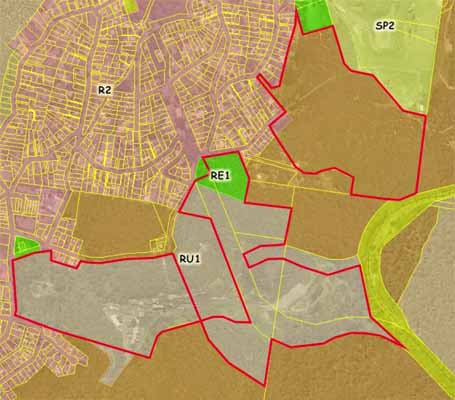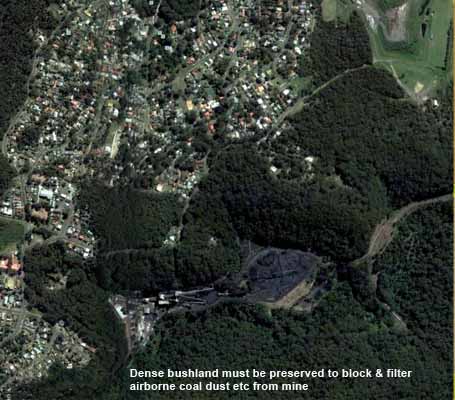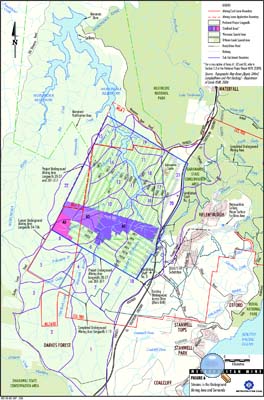| |
The
bushland surrounding the Colliery needs to be preserved as much as
possible, in order to protect the Hacking River catchment, the wildlife
corridor connecting the Royal Park to the Illawarra
escarpment, the habitat of threatened native species, and the health
and comfort of 2508 residents, as an important buffer to
airborne coal dust from the Metropolitan
Colliery.
Dense bushland and rainforest not only retains excessive stormwater and
prevents soil erosion, it more importantly maintains a natural
airfilter and sound barrier to the disturbance and coal dust
discharge
expected from a large mine . Trees and bushland on the ridge
skyline also hide the heavy industry from the surrounding village
community and tourist drives. In acccordance with
the Department of Environment, Climate Change and Water & the
Department of Planning regulations; the colliery has stricts limits of
coal dust, noise, lights, water run-off and waste emitted.
Neighbouring private properties affected /damaged by
excessive levels can even demand compulsory aquisition by the Colliery,
so all complaints received by Metropolitan Colliery
are recorded, investigated, reported and a solution sought
It would therefore be in the Helensburgh /Otford residents and
Metropolitan Mines' best interests that all existing vegetation around
the mine surface and the region above and around the long wall mining,
and ventilation shafts is not only conserved but increased and
thickened. To maintain the conservation status that 7D afforded this
precinct and surrounding bushland, E2 zoning must be implemented.
Additional to the Colliery precinct, all bushland precincts between
Helensburgh and Otford should be
zoned E2, as they form the Hacking River catchment and form the crucial
wildlife habitat corridor linking the
Royal National Park to the Illawarra escarpment. And is surrounded by
beautiful
areas of rainforest in the deep valley and old growth forest on the
steep upper slopes. Powerful owls, bentwing bats, pygmy
possums all inhabit this region, and there is high evidence of resident
platypus on the banks of the river.
All
stormwater and run off from this precinct leads
directly to the Hacking River, into to the Royal National Park area.
Containment ponds
in
Helensburgh have failed , and more in Helensburgh or Otford will not
help. There is no guarantee
stormwater and pollution control systems will work effectively in such
a high rainfall region. The only
method to retain the relative purity of the Hacking catchment and
river, is to cease and prevent any new development, and restore
degraded land to native bush.
The
forest and bushland north, east and south of this precinct should not
only be preserved
but restored as a buffer to the mine but also a natural block
to hot westerly winds, keeping the Otford valley and Hacking catchment
moist and temperate.
Any zoning other than E2 does not provide
adequate protection against land clearing nor future high density
dwellings.
We have already seen how quick the Department of Planning can
remove clauses that would otherwise inhibit development. This
precinct must be zoned E2.
For the remainder of the the '7d' lands I do not support the
zone downgrading of environmental protection of any '7D' land in the
2508 region.
Yours faithfully
|


